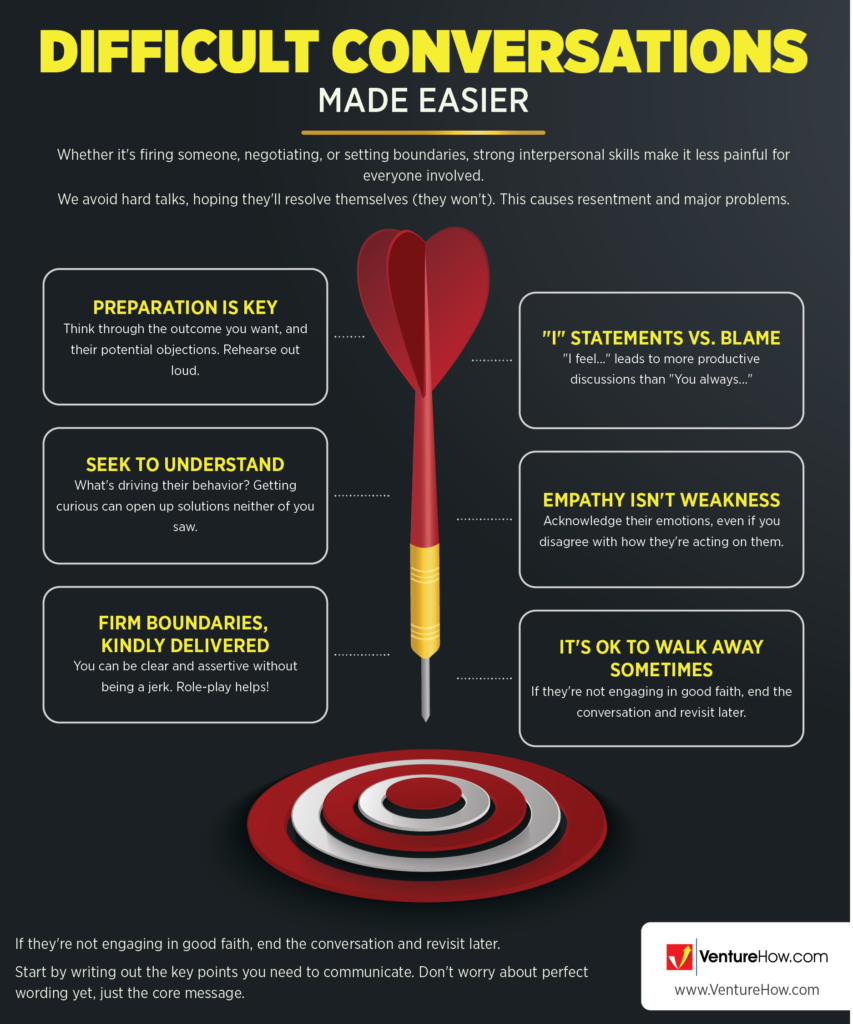Difficult Conversations Made Easier
By: A Staff Writer
Updated on: Sep 02, 2024

Difficult Conversations Made Easier
Whether it’s firing someone, negotiating, or setting boundaries, strong interpersonal skills make it less painful for everyone involved.
We avoid hard talks, hoping they’ll resolve themselves (they won’t). This causes resentment and major problems.
- Preparation is key: Think through the outcome you want, and their potential objections. Rehearse out loud.
- “I” statements vs. blame: “I feel…” leads to more productive discussions than “You always…”
- Seek to understand: What’s driving their behavior? Getting curious can open up solutions neither of you saw.
- Empathy isn’t weakness: Acknowledge their emotions, even if you disagree with how they’re acting on them.
- Firm boundaries, kindly delivered: You can be clear and assertive without being a jerk. Role-play helps!
- It’s ok to walk away sometimes: If they’re not engaging in good faith, end the conversation and revisit later.
What type of difficult conversation do you need to have, but keep putting off?
Start by writing out the key points you need to communicate. Don’t worry about perfect wording yet, just the core message.